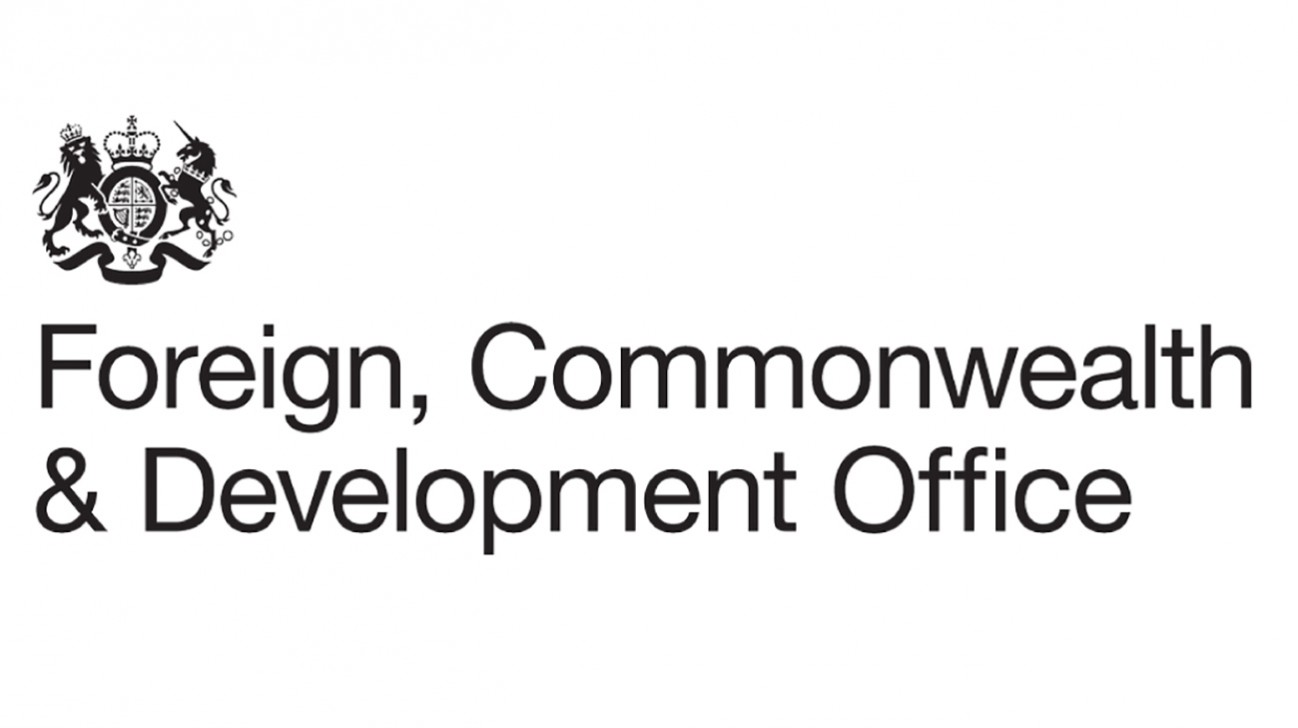The WPS agenda has been a priority for British foreign policy since UNSCR 1325 was agreed 20 years ago. All those seeking to address conflict have been encouraged to find ways to support women’s engagement in finding solutions, both on principle as all voices need to be heard if a conflict is to be resolved fairly, and because research has shown that the peace is more likely to be sustainable if women help shape it, and are central to its implementation. Working in the field, for instance on the conflict in South Sudan, you don’t need academic research to tell you how important women’s voices are. Our partners on the ground know this themselves. But the challenge is to ensure that mediators recognise this, and shape negotiations to allow them to be heard.
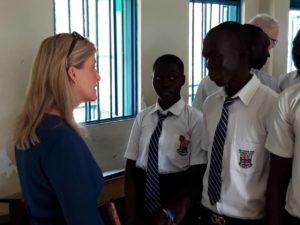
Having worked with South Sudanese civil society in the run-up to the peace talks that took place in Addis Ababa in 2018, it was inspiring to hear women coming together from all sides of a very bitter political divide to advocate for legally binding minima for women in the power sharing deal that was being negotiated. And although the agreed target, of 35%, was lower than some wanted, there was a real sense of achievement when it was written into the agreement. This was a really important reminder to me, and other mediators, that we are not doing this to impose some kind of ‘European’ values on the parties to a conflict – it is happening because women across the world are themselves demanding the chance to rebuild their societies post conflict. And as they often bear the brunt of the consequences of the fighting it is right that this should happen.
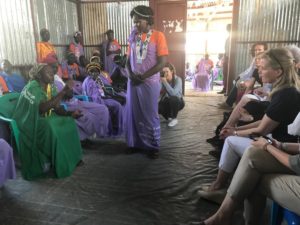
Sadly since the signing of the peace agreement for South Sudan, in September 2018, the men in leadership positions have not kept to the commitments they made in that agreement. As an Embassy therefore we have been trying to find innovative ways to support those calling for the targets to be met. Naturally this involves using the full range of tools in our tool-box – working with women’s groups to empower them, challenging political leaders, both publicly and in private, to keep to their commitments, advocating in the media for the target (which was set by South Sudanese themselves) to be met. But as a priority country under the UK’s National Action Plan we were also asked to be ambitious in our thinking – was there something we could do that was above and beyond normal diplomatic practice, that could really raise the profile of the WPS agenda in South Sudan.
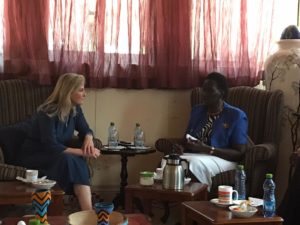
Our proposal was a bold one, and one that surprised many of our colleagues in both London and at post. To propose a visit from the Countess of Wessex in her capacity as a champion of this agenda! This would be the first ever visit to South Sudan by a member of the Royal Family, and would, we felt, be sure to get significant coverage in the media here. It also gave us an opportunity to shape a programme that was distinct from the usual round of calls on politicians. Naturally organising a Royal visit to a country in conflict was complicated, and took a huge amount of work by the core team of organisers, but on 3 March this year HRH The Countess of Wessex arrived in Juba. Over the period of three days we introduced her to some of the most inspiring women it is possible to meet, anywhere. Politicians, including the country’s first female vice president, civil society activists, and journalists. In Malakal, in the north of the country, she saw for herself how our partners are working with women who have been displaced by the conflict to enable them to rebuild their lives and find ways to earn a living. She also spent time with victims of the conflict – hearing them recount shocking stories of rape and brutality.
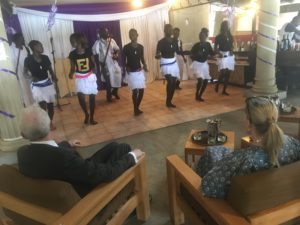
At the end of the three days she celebrated Women’s Day with our partners on the banks of the Nile – in a joyous celebration of all that 1325 should mean for the inclusion of South Sudanese women in shaping their own, more peaceful, future. We were very grateful to HRH for coming to South Sudan, and as it turns out we were very fortunate to have delivered such a productive visit just before the COVID shutters came down. It was a real pleasure for the team to design and deliver her programme – the challenge now of course is to ensure that our follow-up activities keep up the momentum.
#UNSCR1325 #WPS20


